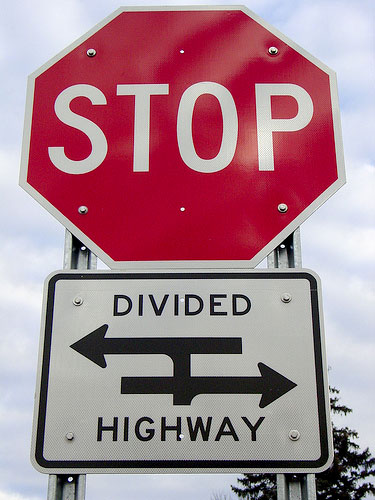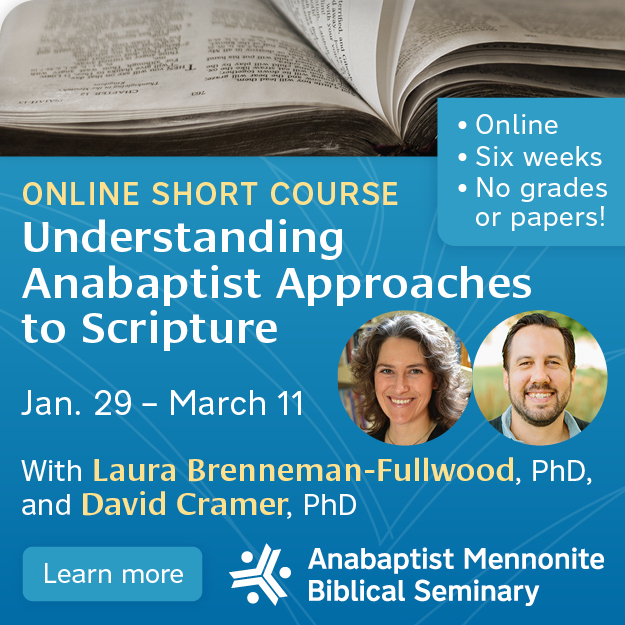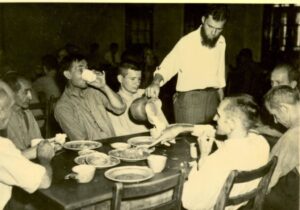There are some verses in the Bible that we studiously avoid thinking about, let alone discuss publicly. They are like repressed memories or family secrets that threaten to cast us back into shame and confusion, to undo the semblance of peace, fellowship and orderliness that we have so diligently cultivated for ourselves.
What a surprise then that our summer lectionary, that sometimes errs on the side of cautious diplomacy in its selection of readings, included Luke 12:49-53, one of the least consoling and most bluntly divisive messages ever attributed to Christ:
“I came to bring fire to the earth, and how I wish it were already kindled! I have a baptism with which to be baptized, and what stress I am under until it is completed! Do you think that I have come to bring peace to the earth? No, I tell you, but rather division! From now on five in one household will be divided, three against two and two against three; they will be divided father against son and son against father, mother against daughter and daughter against mother, mother-in-law against her daughter-in-law and daughter-in-law against mother-in-law” (NRSV).
Whether sword or division, the message is the same: Faith in Christ will divide us, even at the level of our most intimate associations. How these words must have shocked Christ’s listeners back then.
While a contextually attuned reading of these verses is obviously important, we should be wary of allowing the historical context of Christ’s words to limit their contemporary force or relevance in our lives. Was he only preaching division to the early church in a moment of evident frustration or is he preaching division to us still today? Can we just pick and choose what we want to hear from Christ or sift the gospels only for those words most congenial to our current cultural values? How ready are we to listen to a gospel of division in an age that not only ascribes the highest moral value to tolerance and inclusiveness, but that associates these specific values with Christ himself?
The faith that Christ recommends in Luke 12 is founded on an Old Testament understanding of God’s Word as having the properties of fire. It will destroy, separate elements and purify. The separation of elements is what Christ means by division. If we have Christ’s nature and Spirit in us, and allow ourselves to be governed by these, then we will walk a different path than many of our coworkers, acquaintances, friends and even relatives.
Division occurs first in the soul, as the believer is divided against natural inclinations, and then by degrees is transformed in thought and belief. To accept Christ is to be changed. “If anyone is in Christ, he [or she] is a new creature; the old things [have] passed away; behold, new things have come, ” Paul says in II Corinthians 5:17. From this inner soul-searching division against the old that must pass away, there follows an outer division, a change of perspective and conduct by which we stand apart from—and against—all the ways of the world that deny, diminish or deride the ways of Christ.
In all of these areas, we must first exercise prayerful discernment, and then, as Christ says, expect division. Indeed, we cannot read the Bible closely, reflect on it and pray for spiritual guidance without finding ourselves drawn away from something even as we are drawn to something else. This is an inevitable part of discipleship. But if, on the other hand, we are comfortable in the world, largely carefree and untroubled by the habits of our culture, easily able to reconcile the life of the Spirit with the trends of the age, then we are not taking Christ’s admonitions seriously enough. Having separated us out even before we were born and consecrated us to his purposes, he wants us likewise to separate ourselves from a world of sin.
I’m certain that we all have opportunities to exercise our contrary and divisive spiritual callings. And I don’t think this necessarily means entering the public sphere and making grand countercultural gestures or declarations. On the contrary, it is often in our everyday lives where our convictions, humbly followed, bear the greater fruit. Let me suggest three opportunities:
• The first concerns habits of transportation, how we get around and treat others in our daily travels. In seven years of living in Waterloo, Ont., and waiting to cross at a nearby intersection, only about a dozen times has a car stopped and let us cross. Maybe twice a year such a miracle happens!
I think how we drive our cars says something about our priorities. It also says something about our increasing detachment from one another. For if we don’t stop for a child waiting to cross the road, what will cause us to touch our brakes? How did we become so preoccupied with our own lives and schedules, so unmindful of the presence of others, so wedded to speed and our own “right of way”?
I encourage you to practise stopping for pedestrians young and old. Let go of your schedule. Risk the wrath of the drivers behind you. Change the culture of movement on your neighbourhood streets. Who knows where that could lead?
• I’m convinced that our reliance on mobile technology, our addiction to it—where we bring it, how we use it, what relationships we allow it to mediate for us—is no longer just an issue of common courtesy or common sense. It has profound spiritual implications.
For if I am increasingly unable to be among people—whether at a ball game, music recital or school play, or even in church—without my attention wandering to, and being entirely engrossed by, my devices, then I will miss opportunities, some that may never return, for serving God, because what we do for the least of those around us, we do for Christ himself.
Yet how can we do anything, enter into anyone’s world of cares, extend any sympathetic gesture to the people immediately around us, when our thumbs are busy hammering out ephemera for distant readers? We are becoming self-absorbed, myopic wanderers of virtual realities, evermore blind to the real needs of others in whom Christ is manifest.
So what do we do? In this case, I think it really helps to take radical steps that one would do with any other compulsive or addictive behaviour: Weed it out where you can. Give it up where you ought. Exercise self-restraint for the good of your most casual and your most intimate relationships, and for the good of your relationship with Christ above all else. For such things we were created, and not for a life of prostration before the cold flicker of technology.
• My final suggestion is the most overtly divisive. It will almost certainly turn someone away: a neighbour, a friend, perhaps even a fellow church member. It is a practice inspired by Christ’s Great Commission, a practice that many denominations have largely delegated to missionaries or given up on entirely.
It involves essentially only this: Telling someone else about Christ, inviting someone to hear the Word. Perhaps a neighbour, a coworker, an estranged family member, a passing acquaintance. Tell someone. Invite someone. Speak your faith. If it makes a difference to one person or one family, a life-altering difference that you yourself can attest to, would not all our effort and awkwardness be worth it?
I have wrestled with this issue often, and no matter what arguments I erect as stumbling blocks to my initiative, I always feel that this is the inescapable will of God that needs to be done with love and sensitivity, as one beggar showing another beggar where to find bread.
It will assuredly mark us out as different. It is perhaps the most divisive, but, at the same time, the most generously unifying act that I can think of. May Christ give us the courage to be divisive, to lay our fears, our scepticism, our complacency aside for his sake and for the sake of those who are truly hungering and thirsting for the words of eternal life.
Adapted from a sermon preached by Markus Poetzsch at Waterloo North Mennonite Church, Waterloo, Ont., on June 18. For complete sermon, visit canadianmennonite.org/luke12.











Leave a Reply
You must be logged in to post a comment.